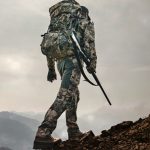Amer Group is reporting that net sales for the second quarter of 2003 decreased 4.2% to 251.8 ($286.3) million compared to 262.8 ($241.7) million in the year-ago period. Sales of golf equipment in particular were slower than expected. Foreign exchange rate movements reduced net sales by 34 ($38.66) million. Operating profit was 9.5 ($10.8) million, 72% lower than the 23.2 ($21.3) million operating profit in Q2 last year. Profit before extraordinary items totaled 7.6 ($8.6) million compared to 20.8 ($19.1) million in the year-ago quarter.
The seasonality of the Groups businesses was clearly in evidence in the second quarter, which is low season for Winter Sports and high season for Golf. Thus the Winter Sports division is focusing on producing its products for the coming winter sports season, for which deliveries mainly take place in the latter part of the year.
Amer Groups consolidated net sales during the first half of 2003 were 535.7 ($591.9) million versus 552.2 ($507.9) million in H1 2002. Operating profit amounted to 24.8 ($27.4) million compared to 38.5 ($32.9) million in the first half last year. Profit before extraordinary items totaled 20.7 ($22.9) million versus 35.5 ($32.7) million and earnings per share were 0.61 (67 cents) compared to 1.10($1.01).
Amer Groups net sales for 2003 as a whole are expected to be similar to 2002s 1.1 ($1.01) billion, whereas operating profit is expected to be around 70-80 million versus the 103.0 ($94.7) million achieved in 2002.
Demand for sports equipment remained weak, particularly in the USA. Foreign exchange rate movements reduced net sales by 66 million, due to the strengthening of the euro especially against the US dollar, but didnt have major impact on operating profit.
Geographically, sales were similar to 2002 in North America and in Europe but declined by 22% in Japan and by 7% in Asia Pacific. Sales in North America were boosted by the first time contribution of Precor which was acquired at the end of 2002.
Across the Groups divisions between January and June, the Team Sports Division continued to perform well. In the golf equipment market, competition continued to be tough and the Golf Divisions sales were clearly down compared to last year. The Racquet Sports Divisions sales were also lower than 2002s. Sales of Sports Instruments were reduced by a decline in sales of diving instruments as well as sales of Suuntos non-core products. In Winter Sports, deliveries mainly take place in the second half of the year. In volume, pre-orders for the winter sports season 2003/2004 are nearly approaching those of the previous season. Amer Tobacco's sales declined as the Finnish cigarette market shrunk.
In local currencies, the Racquet Sports Divisions net sales declined 6% and operating profit declined 19%. In both Europe and in Japan, sales were similar to 2002. Sales declined 10% in North America.
The Company estimates that the overall tennis market continued to decline. The average selling price of a tennis racquet also continued to fall.
Sales of Wilson tennis balls decreased 4%, tennis racquets 10% and footwear 3%. Wilsons position as the global market leader in tennis racquets remained strong and in tennis balls Wilson remains number three.
During the period under review, shipments of Wilsons new Triad racquets as well as its new Pro Staff racquets started. Shipments of the new Hammer racquet model, Series H, commenced in May.
New footwear was also brought to market during the period.
In the Golf Division, net sales and operating profit were clearly below expectations. Net sales in local currencies declined 17%. Sales fell by 23% in North America, by 3% in Europe and by 10% in Japan. Operating profit declined significantly due to declining sales as well as lower prices, especially for golf balls.
During the second quarter of the year, which is the high season for golf, net sales in local currencies declined 10% and operating profit continued to decrease.
In the USA, although sales of golf clubs to the trade grew 5%, sales of golf balls declined 13.5% (source: National Golf Foundation, July 2003). Also the number of rounds played declined in the USA. In Europe the market remained flat whilst the Japanese market continued to be challenging.
Sales of Wilson golf clubs decreased 16%. The golf ball market continued to be extremely competitive and Wilson golf ball sales declined 25% as a result.
In order to ensure its competitiveness and to increase efficiency, Wilson was re-organized during the second quarter, which is expected to lower Amer Groups overall cost base by approximately EUR 10 million in 2004 with most of the savings coming from the Golf Division.
In local currencies, the Team Sports Divisions net sales grew by 6%. Operating profit was similar to 2002s.
The fastest growing product categories in Team Sports were basketballs (13%), and baseball and softball bats (23%). The bat category sales growth comes from product line extension into the youth baseball market. The basketball sales growth is being driven by the new five-year National Collegiate Athletic Association (NCAA) ball adoption, which took effect at the beginning of 2003. As a result of this agreement, Wilsons basketballs are used as official match balls in all NCAA tournament games.
During the period, a new NCAA Composite Basketball was introduced, featuring Cushion Core Technology for outstanding grip and feel. The Team Sports Division also shipped a new Wilson Youth Batting Helmet, a one size fits all helmet for Baseball and Softball.
Wilson is the number one team sports company in the USA and its position is especially strong in American football, basketball and baseball.
In April, Amer Group announced that it intended to re-organize its Wilson businesses in the USA in order to ensure its competitiveness and to increase efficiency. The re-organization, together with related adjustments in Wilsons cost base in line with its business and current market situation, is expected to lower Amer Groups overall cost base by approximately EUR 10 million in 2004. The restructuring will not have a significant impact in the current financial year in terms of additional costs.
In the new structure, the businesses are being divided into two operations: Golf & Racquet Sports, and Team Sports. Wilsons central administration functions have been discontinued and decentralized.
In line with the winter sports' business cycle, the Winter Sports' Division focused on producing next season's lines during the second quarter of the year. Due to such seasonality, Atomic's deliveries are heavily weighted towards the latter part of the year, the busiest months for deliveries being September and October. Due to this, Winter Sports' operating losses during the first half of 2003 were EUR 12.6 million.
Net sales in local currencies declined 18% with reductions in all major markets. Poor snow conditions in Austria and Germany resulted in lower re-orders. Snow conditions got better towards the end of the season 2002/2003, such that stock levels are now mostly at normal levels.
In February Atomic presented the worlds first microprocessor-controlled ski bindings, Neox EBM 412.
The level of pre-orders suggests there will be a slight downturn in the market in 2003, reflecting the cautious mood of the trade. In addition, lower price point products have increased as a proportion of total sales. The major part of Winter Sports pre-orders for the coming season have now been received and in volume the order book is close to last years level.
In 2003, Winter Sports' investment in its sales organization is planned to be higher than last year.
Fitness Equipments net sales and operating profit in local currencies were similar to last years level. Sales of treadmills and cycles grew, whereas sales of elliptical cross-trainers declined slightly.
North American commercial and consumer markets appear to be cooling. Major club organisations are holding off on purchases, and consumers are similarly cautious.
During the period, a new line of C846 and C842 upright and recumbent cycles for club and commercial markets were brought to the market.
Despite general uncertainty, the fitness sector as a whole is expected to continue growing. Further growth is also anticipated in the popularity of elliptical fitness equipment. The Fitness Equipment Division continues to have good growth opportunities especially outside North America.
Amer Group's fitness equipment division, Precor, is in negotiations to settle a patent litigation case. The litigation relates to an exclusive right held by Precor to use technology for elliptical fitness equipment. The other party to the litigation, the Life Fitness division of Brunswick Corporation, has made a 25 million USD provision, reflecting its estimate of the likely outcome of the litigation. A final settlement has not been reached yet and negotiations continue between the parties.
In local currencies, Suuntos net sales declined 5%. Sales of Suuntos wristop computers grew 6%. The global diving market declined and sales of Suuntos diving instruments fell by 17%. Wristop computers and diving instruments accounted for 58% of Suuntos net sales.
In January, Suunto announced a partnership with Microsoft. This cooperation will lead to a new Suunto n3 sports wristop being launched in North America at the end of 2003.
In September, Suunto will bring its new Suunto X3HR wristop computer, which features a heart rate monitor, to the market.
In March Suunto sold its wholly-owned subsidiary Ilotulitus Oy to Truebell Plc. The net sales of Ilotulitus Oy in 2002 were EUR 2.8 million.
At the beginning of 2003, Suuntos European central warehousing function was relocated to Amer Sports new logistics centre in Überherrn, Germany.
In May, the Finnish Supreme Court issued a ruling that arbitrators have to resolve quarrels between a company and its shareholders, if the articles of association so determine. Based on this ruling, the Court will not question the lawsuit where two small shareholders Eternelli Oy and Ari Neuvonen are requesting that Amer Group Plc be put into liquidation. According to the action, Amer's major shareholders misused their authority when deciding on the redemption of the Companys shares and the share class conversion in July 1997.
Demand for sports equipment did not recover during the first half of 2003 and is not expected to recover significantly during the remainder of the year. In Amer Groups key markets, the US and Germany, both the trade and consumers remain cautious.
Traditionally, in addition to the economic background, demand for sports equipment is strongly influenced by sports-related factors like trends in the active following of individual sports and new innovations in sports equipment. Amer Groups operations are well balanced by its broad portfolio of sports and its presence in all key markets.
Amer Group has set itself the goal of becoming the worlds No 1 sports equipment company. With strong cash flows from operating activities and a strong balance sheet combined with a good position in the sports equipment market, Amer Group has a firm foundation to advance the strategic development of its businesses. Amer Groups net sales for 2003 as a whole are expected to be similar to 2002s (2002: EUR 1,101.9 million), whereas operating profit is expected to be around EUR 70-80 million (2002: EUR 103.0 million).















